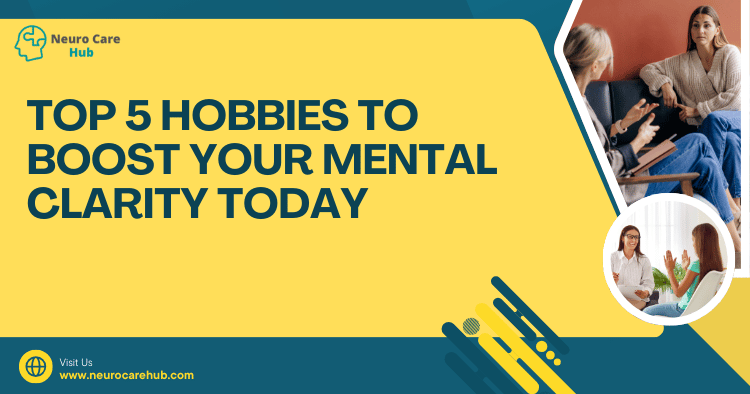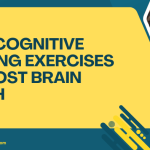Table of Contents
- Introduction
- 1. Gardening
- 2. Painting and Drawing
- 3. Playing a Musical Instrument
- 4. Yoga and Meditation
- 5. Writing
- Conclusion
- FAQs
Introduction
In our fast-paced world, achieving mental clarity can often feel like a monumental task. Between work obligations, personal commitments, and the endless stream of information we consume daily, it’s easy to become overwhelmed. However, engaging in hobbies can provide a refreshing escape while enhancing your mental well-being. In this article, we’ll explore five hobbies that not only offer enjoyment but also significantly boost mental clarity.
1. Gardening
Gardening is more than just a pastime; it’s a therapeutic practice that connects you with nature. Studies show that spending time outdoors can reduce stress, lower anxiety levels, and improve overall mood. Gardening encourages mindfulness as you focus on nurturing plants, which can help clear your mind of clutter.
“Gardening is a way of showing that you believe in tomorrow.” — Audrey Hepburn
Benefits:
- Physical Activity: Digging, planting, and weeding provide a good workout, which releases endorphins that enhance your mood.
- Mindfulness: The repetitive actions of gardening bring your attention to the present moment, reducing anxiety and stress.
- Creativity: Designing your garden layout or choosing plant combinations can stimulate your creativity.
Quick Gardening Tips:
| Tip | Description |
|---|---|
| Start Small | Choose a few pots or a small plot. |
| Select Easy Plants | Opt for low-maintenance plants like succulents. |
| Schedule Regular Time | Dedicate at least 30 minutes a week. |
For more insights on how gardening contributes to mental health, see the article on Top 5 Essential Insights on Neuro Care You Need to Know.
2. Painting and Drawing
Artistic hobbies like painting and drawing are excellent outlets for self-expression. Engaging in these activities can help you process emotions and thoughts that may be swirling in your mind.
“Every artist was first an amateur.” — Ralph Waldo Emerson
Benefits:
- Emotional Release: Art can serve as a therapeutic release, allowing you to express feelings that are difficult to articulate.
- Focus and Concentration: When you paint or draw, your attention is drawn to the creative process, which helps to clear your mind.
- Sense of Accomplishment: Completing a piece of art can boost your self-esteem and provide a sense of achievement.
Simple Steps to Get Started:
| Step | Description |
|---|---|
| Gather Supplies | Start with basic supplies: paper, pencils, or paints. |
| Find Inspiration | Look for ideas online or in nature. |
| Create Regularly | Set aside time weekly to create art. |
For tips on how art therapy can enhance mental clarity, check out Top 5 Myths About Neuro Care Debunked.
3. Playing a Musical Instrument
Learning to play a musical instrument can be both challenging and enjoyable. Music has a profound impact on the brain, and playing an instrument can significantly enhance cognitive functions.
“Music can change the world because it can change people.” — Bono
Benefits:
- Improved Memory: Learning music theory and practicing songs boosts memory and cognitive skills.
- Stress Relief: Playing music can be a form of meditation, allowing your mind to relax.
- Joy and Fulfillment: Creating music can bring joy, providing a sense of satisfaction.
Getting Started with Music:
| Step | Description |
|---|---|
| Choose an Instrument | Start with something that interests you, like a guitar or piano. |
| Take Lessons | Consider online tutorials or local classes. |
| Practice Regularly | Aim for at least 15-30 minutes a day. |
For more insights on the cognitive benefits of music, refer to Top 5 Benefits of Regular Neuro Check-Ups for Your Health.
4. Yoga and Meditation
Yoga and meditation are ancient practices that have gained popularity for their profound mental health benefits. They help cultivate a calm mind and enhance clarity.
“The mind is everything. What you think you become.” — Buddha
Benefits:
- Increased Focus: Regular practice improves your ability to concentrate and stay present.
- Stress Reduction: These practices reduce cortisol levels, leading to lower stress and anxiety.
- Enhanced Self-awareness: Yoga encourages introspection, allowing you to better understand your thoughts and feelings.
Tips for Beginners:
| Tip | Description |
|---|---|
| Start with Online Classes | Explore platforms like YouTube or specialized apps. |
| Create a Calm Environment | Designate a quiet space for your practice. |
| Be Consistent | Aim for a few times a week to start. |
For further reading on the benefits of mindfulness practices, visit Top 5 Ways to Integrate Neuro Care into Wellness Routine.
5. Writing
Writing can be a powerful tool for mental clarity. Whether you choose to journal, write poetry, or create stories, the act of writing allows you to organize your thoughts and emotions.
“Writing is the painting of the voice.” — Voltaire
Benefits:
- Clarification of Thoughts: Putting pen to paper can help you articulate and clarify your thoughts.
- Emotional Processing: Writing about your feelings can provide a therapeutic outlet for stress and anxiety.
- Creativity Boost: Creative writing fosters imaginative thinking and problem-solving skills.
How to Begin Writing:
| Step | Description |
|---|---|
| Keep a Journal | Write daily about your thoughts and experiences. |
| Explore Creative Writing | Try prompts or join a writing group. |
| Set Aside Time | Dedicate regular time to write without distractions. |
For tips on enhancing your writing process, check out Top 5 Tips for Choosing the Right Neurologist.
Conclusion
Engaging in hobbies is not just a way to pass the time; it’s an investment in your mental health. By incorporating activities like gardening, painting, playing music, practicing yoga, and writing into your routine, you can enhance your mental clarity and overall well-being. So why wait? Pick a hobby that resonates with you and start reaping the benefits today!
FAQs
Q: How often should I engage in these hobbies to see mental clarity benefits?
A: Ideally, aim for at least a few times a week. Consistency is key for mental health benefits.
Q: Do I need to be skilled at these hobbies to benefit?
A: No! The focus should be on the process and enjoyment, not perfection.
Q: Can I combine these hobbies?
A: Absolutely! For example, you can listen to music while gardening or write about your experiences in yoga.
Q: Where can I find community support for these hobbies?
A: Look for local clubs, online forums, or social media groups focused on your chosen hobby.
Feel free to explore these hobbies and discover the path to greater mental clarity today!






